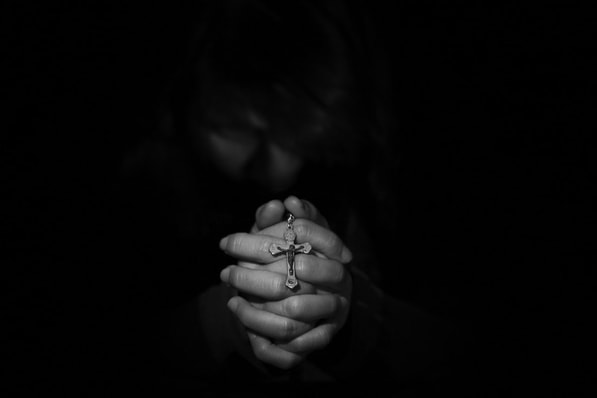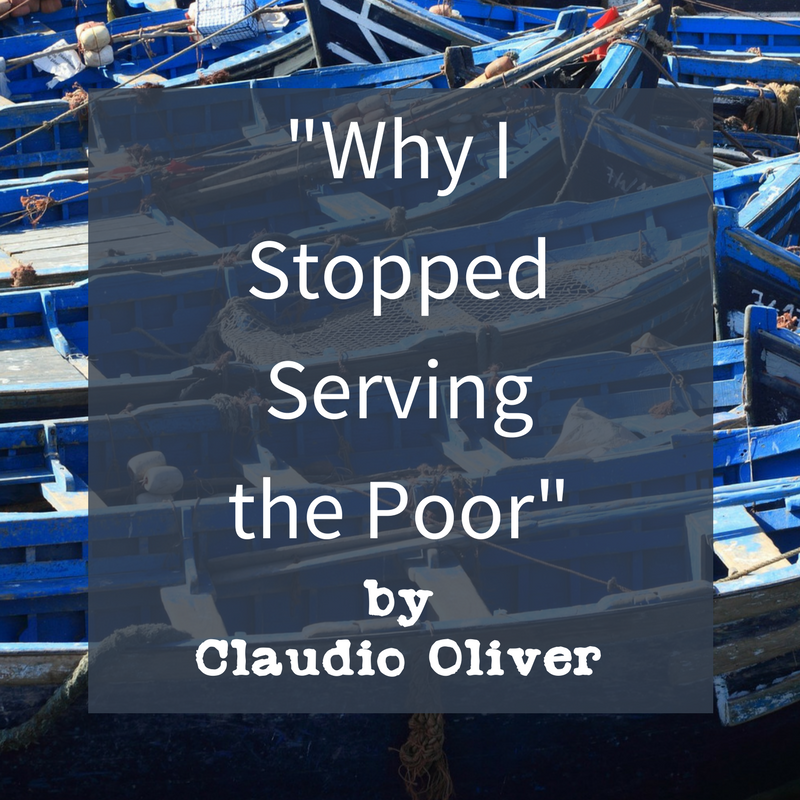|
Dear white Christians,
I know that some of you might get angry that I am even distinguishing us as white, but it's necessary. You might ask why, and I'll answer, but not right now. Right now I want to remind us of the Lord's Prayer. Right now I want to say that if you are looking for a place to start untangling all that you may or may not understand that is happening in the world, start there, with the Lord's Prayer. OUR FATHER Yes, He is all of our Father. Notice Jesus does not say My Father. He says Our. Our is a collective possessive adjective here. We all get to be a part. Not just the sinless One; no, we are family. YOUR KINGDOM COME & YOUR WILL BE DONE This is not about our own kingdoms. This is not about my own family, my own house, my own financial wealth. This is about God's Kingdom Come. And His kingdom is a counter-cultural kingdom, it's an upside down kingdom, it's a shalom-embodied community where everyone is seen as neighbor and everyone flourishes in his/her own way. This is a kingdom where no one is higher on the "worth" scale than anyone else. Everyone is worthy. Everyone has value not because of his/her actions, but because he/she is a HUMAN BEING MADE IN THE IMAGE OF GOD. GIVE US THIS DAY OUR DAILY BREAD This is a violent confrontation with the idol of scarcity (or the scarcity mindset) that says there's not enough. There's never enough. How does this play out in what's happening right now? It plays out in privilege. Our privilege mixed with our American Dream mentality tells us (just as Egypt tried to ingrain in the Israelite psyche) that your worth is found in how much you produce, how much you own, how much you hoard, how much you keep. This idol feeds off of individuality. And we feed it so very much. It's ingrained in our very psyches. And we must be reminded every day that God is our provider, that there is enough to go around, and that we can trust the Manna that comes from above. When the Israelites when into the desert, Manna was necessary not just for their physical nourishment but also for their souls. Like them, we have come to believe the lie that there's not enough, we're not enough, our resources aren't enough ... so we hoard. We hoard resources, we hoard privilege, we hoard and build up our own kingdoms rather than building that shalom-filled community. FORGIVE US OUR TRESPASSES Why is it so hard for us as white Christians to ask for forgiveness? Why is it so hard for us to start with confession? Is it because we think it makes us look weak? Is it because we know confessing our complicity in racism requires that we take a good look at the kingdoms we've built and realize we, just like our ancestors, built them on a foundation of oppression? Is it because it requires us to scrutinize the things we've accumulated, hoarded? Our "successes"? We have trespassed against our brothers and sisters of color and we have trespassed against God. We won't move forward in this fight if we don't confess, not fake confessions of "oh I'm sorry you feel this way" or "I'm sorry if I unintentionally offended you". Nope. Not base-level statements of racism is wrong. That's not true confession. True confession says I WAS WRONG. WE WERE WRONG. WE HAVE SINNED. Full stop. We've perpetuated a horrible theology that says that white lives are more important than other lives, and what's worse, we've used the Bible to do it! Oh no, we've never said *that* out loud, but we say it with our staff makeup, with our bookshelves that have mostly/all white authors, with our constant references to white theologians, with our pulpits and church staffs, with our constant elevation of white thinkers, with the schools we choose for our kids, with the neighborhoods we choose to live in, with our outreaches. WITH OUR VALUES. Let's confess that our values have not aligned with the values of the kingdom of God. It's the internal sins, the sins of omission, the sins of silence, the sins of refusing to scrutinize our own lives that will keep us yelling from the rooftops that we hate racism all the while we're fighting to perpetuate it. Father, forgive us. We know exactly what we've done.
1 Comment
 Here is a list of resources I personally recommend on racial justice from a Christian perspective. Please note, this is NOT an extensive list, and it is only of Christian books. There are many books on this topic that are very important to read that aren't included on this list! I also have a to-read section below of books I intend on reading but haven't yet as I am always learning more! I attempted to list them in order of what I would give to someone who has never done any anti-racism work first, but I did not read them in this order and I'm sure my ordering could use some help:
For groups of people, check out the following resources:
On my to-read list from Christian authors:
AND MORE FROM DAVID SWANSON 1. Leroy Barber (2016). Embrace: God's Radical Shalom for a Divided World. InterVarsity Press. 2. Brad Christerson, Korie L. Edwards, and Richard Flory (2010). Growing Up in America: The Power of Race in the Lives of Teens. Stanford University Press. 3. Frederick Douglass (2017). Narrative of the Life of Frederick Douglass and American Slave (Bicentennial Edition). Frederick Douglass Family Initiatives. 4. Michelle Ferrigno Warren (2017). The Power of Proximity: Moving Beyond Awareness to Action. InterVarsity Press. 5. J. Daniel Hays (2016). From Every People and Nation: A Biblical Theology of Race (New Studies in Biblical Theology Book 14). InterVarsity Press. 6. Jon Huckins and Jer Swigart (2017). Mending the Divides: Creative Love in a Conflicted World. InterVarsity Press. 7. David P. Leong (2017). Race & Place: How Urban Geography Shapes the Journey to Reconciliation. InterVarsity Press. 8. D. L. Mayfield (2020). The Myth of the American Dream: Reflections on Affluence, Autonomy, Safety, and Power. InterVarsity Press. (Release Date: August 18, 2020). 10. Brenda Salter McNeil (2020). Becoming Brave: Finding the Courage to Pursue Racial Justice Now. Brazos Press ( 11. Brenda Salter McNeil (2020). Roadmap to Reconciliation 2.0: Moving Communities into Unity, Wholeness and Justice. InterVarsity Press. (Release Date: June 16, 2020) 12. Brenda Salter McNeil and Rick Richardson (2009). The Heart of Racial Justice: How Soul Change Leads to Social Change. InterVarsity Press. 13. Mark A. Noll (2008). God and Race in American Politics: A Short History. Princeton. 14. Adrian Pei (2018). The Minority Experience: Navigating Emotional and Organizational Realities. InterVarsity Press. 15. Jemar Tisby (2021). How to Fight Racism: Courageous Christianity and the Journey Toward Racial Justice. Zondervan. (Release Date: January 5, 2021) 14. Miroslav Volf (1996). Exclusion & Embrace: A Theological Exploration of Identity, Otherness, and Reconciliation. Abingdon Press. 15. Curtiss Paul DeYoung, Michael O. Emerson, George Yancey, and Karen Chai Kim (2004). United by Faith: The Multiracial Congregation As an Answer to the Problem of Race. Oxford University Press. And another list from a different David Swanson: (who wrote the book Rediscipling the White Church) has a constantly-updated reconciliation bibliography. Use the comment section below to tell me what resources you would add. Also check out my published page to see what I have written about racial justice. |
Gena's
|


 RSS Feed
RSS Feed

